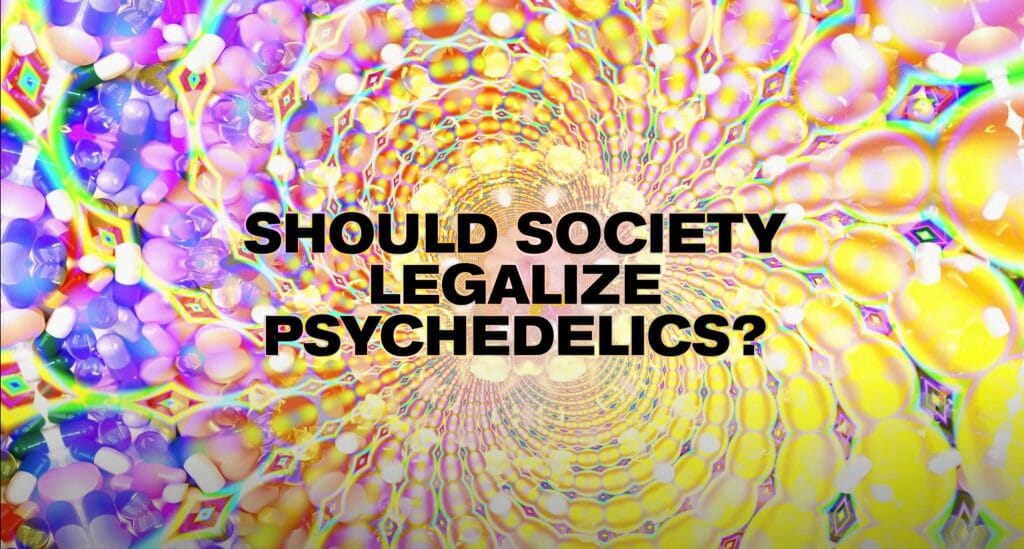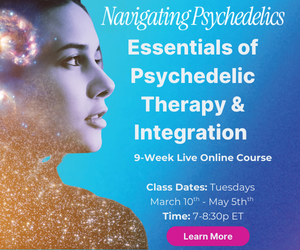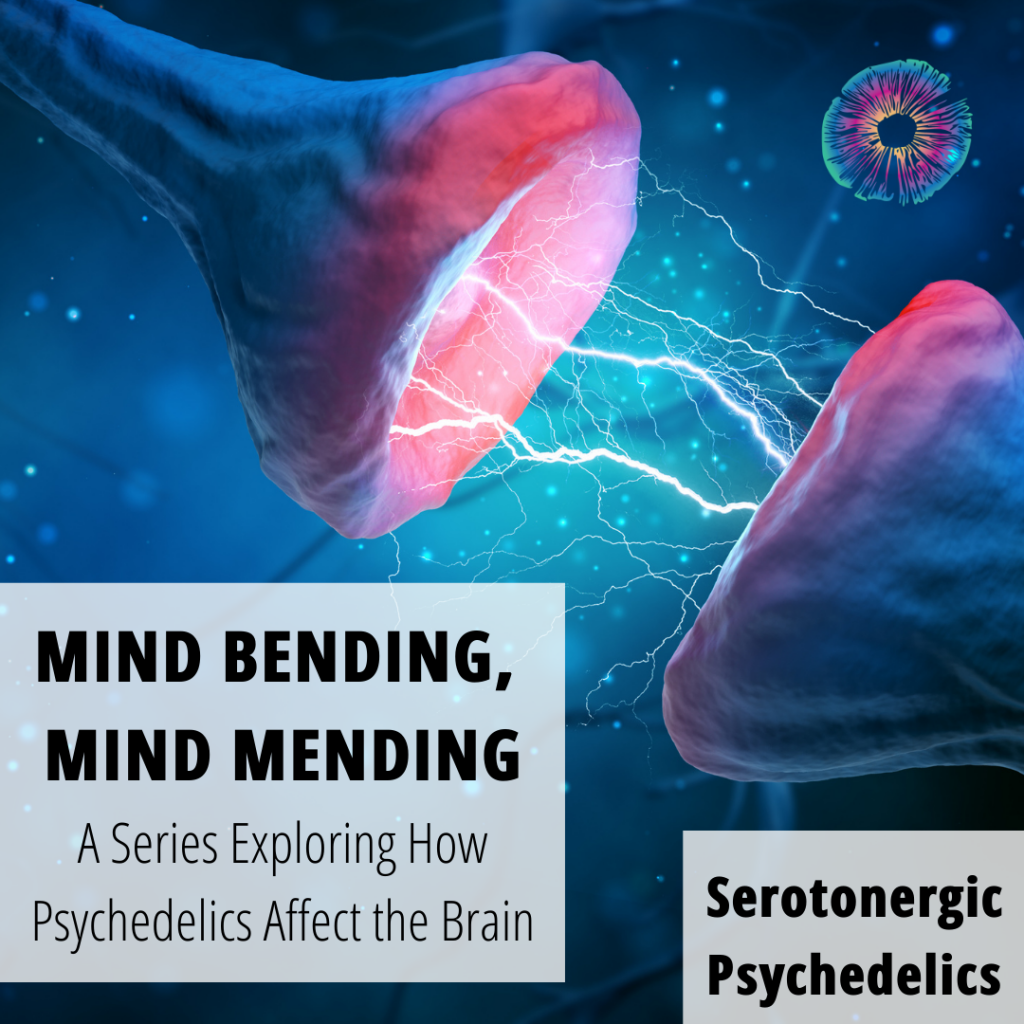By Mike Alexander
Rick Doblin and Bia Labate debated Jeffery Lieberman and Keven Sabet on whether or not psychedelics should be legalized, and the results may surprise you.
Last week, we received an invite to attend an early screening of the newest debate in Intelligence Squared US’s online debate series: “Should Society Legalize Psychedelics?” Being immersed in the world of Psychedelics Today, it seems like we’re constantly involved in various similar conversations around legalization, decriminalization, benefits and dangers, and the less-discussed idea of drug exceptionalism. So while I was curious to see how a question like this would be handled by a more mainstream outlet, I also wondered if they’d get it right. When I saw who would be involved, I knew this would be worth watching.
Arguing for the motion to legalize psychedelics were Rick Doblin, Founder & Executive Director of MAPS, as you likely know if you’re on this site, and Bia Labate, anthropologist, drug policy expert, and executive director of Chacruna. Against the motion were Jeffrey Lieberman, former President of the American Psychiatric Association and Chair of Columbia University’s Department of Psychiatry, and Keven Sabet, three-time White House drug policy advisor, president and CEO of Smart Approaches to Marijuana, and author of Smokescreen: What the Marijuana Industry Doesn’t Want You to Know. What instantly caught my eye was psychedelic legend Rick Doblin going against a three-time White House drug policy advisor (i.e. “The Man”), and I wanted to see exactly how Doblin would choose to wipe the floor with him. But this was a debate, and debates don’t care solely about facts, which to me, is exactly what makes them so interesting.
After a brief and somewhat cringeworthy performance by “psychedelic comedian” Sarah Rose Siskind (which felt very odd to me—if we’re taking this seriously, why are we starting it out with bad jokes about drugs?), moderator John Donvan came on and asked us all to cast a vote before the debate started. We’d be casting another one after the debate, and the winner would be declared by calculating which side’s numbers increased more, or really, which side won over more of the undecided voters.
I personally feel that this is a very nuanced topic that probably can’t be answered with a simple yes or no, but decided to vote “yes” anyway.
The debate started and right away, I noticed a classic juxtaposition between Doblin and the Against Legalization team: Lieberman and Sabet wore black sportcoats and white collared shirts with crisp, stylized hair, while Doblin looked to be wearing a Hawaiian shirt, hair as out-of-control as always. Lieberman looked to be sitting in a professional office with hundreds of journals and important books proudly staged behind him, while Doblin looked like someone dug a chair out of the piles of papers in his office and placed him on it shortly after waking him up. The For Legalization team argued passionately, with a more freestyle tone drawing from personal stories, while the Against Legalization team spoke more slowly and seemed to have more prepared statements (Lieberman seemed to be reading off a script several times).
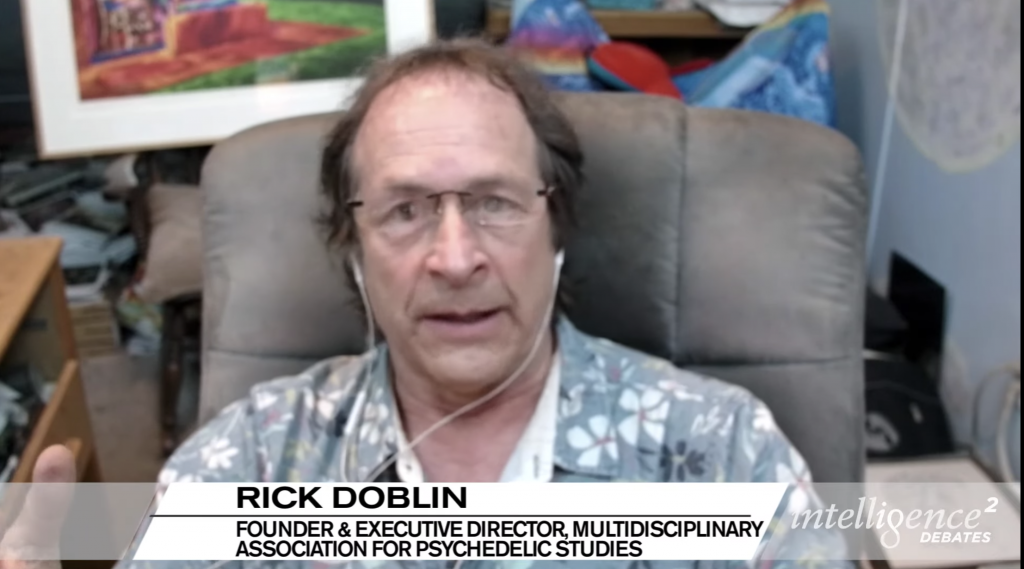
The opening round consisted of each participant getting a few minutes to make as many points as they wanted. Doblin started out by listing what he believed his opponents would agree with him on, and introduced the idea of “licensed legalization,” where the ability to use drugs legally would be handled the way a driver’s license allows you to drive a car (and would therefore be taken away with abuse or misuse). Labate focused on the prevalence of drug use throughout all of history, the racism and failure of the drug war, and how “the sky didn’t fall” when other countries have legalized drugs.
From the Against Legalization team, Lieberman made it clear that while he has plenty of experience with psychedelics and absolutely sees a benefit, they should be decriminalized only and studied for therapeutic use. He also called out MAPS’s mission statement, saying that their effort to develop cannabis into prescription medicines is a “ruse” to get around prohibition, and posited the idea that the gateways to creativity and spirituality people experience were maybe just the drugs fooling them. Sabet performed pretty strongly here, saying that the historical use Labate talked about couldn’t be further from what would happen if the US legalized psychedelics, which he imagines as stereotypically US as possible, with Super Bowl-level mass commercialization, major lobbyists promoting their agendas, and the rich getting richer off of an addiction-for-profit model. He also said that opioids and alcohol kill more people than all illegal drugs combined, partly because they’re legal and therefore used more.
Round two was more of an open discussion with Donvan moderating. Some good points were made by the For Legalization team: decriminalization means impure drugs; classic psychedelics are not addictive; there actually is a lot of ceremonial use already in the US; commercialization doesn’t mean a psychedelic boogeyman is going to create addictive psychedelics; and decriminalization is not freedom and still comes with fines.
Meanwhile, the Against Legalization team didn’t seem to grasp why decriminalization wasn’t enough, but made some great points about how legalization doesn’t always mean purer and better (look at tobacco and cigarettes), and if we haven’t gotten this stuff right in all this time, why would we suddenly get it right when it comes to the legalization of psychedelics? Much time was spent on the need for scientific proof over tons of anecdotal stories. The open discussion showed some heat, and also exposed some debater flaws, like Lieberman rambling to the point of me entirely missing his point and Labate not realizing when her time was up and talking over everyone several times.
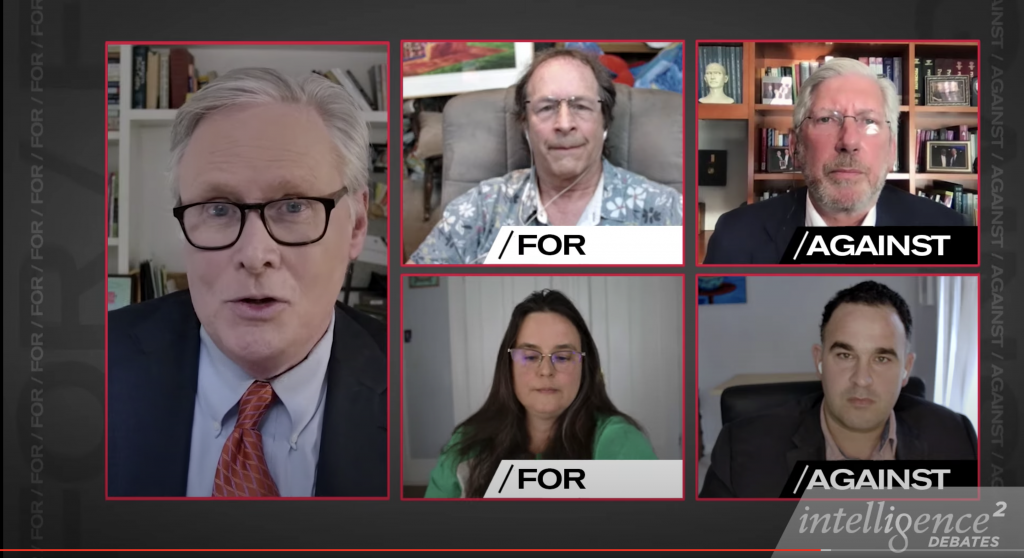
Round three went back to each participant making closing statements for two minutes. Doblin spoke passionately about how much he and his wife have benefited from regular MDMA use, and said opponents shouldn’t let the fear of overcommercialization from “Big Psychedelic” spoil something so many could benefit from. Labate talked about how the US is the “land of freedoms” (which I laughed out loud at), and we’re going to look back on this time in shame, saying that a lot of what had been said against psychedelics was based on fear, a false narrative, and science’s attempt to control everything. Lieberman said that this would be a very dangerous social experiment, and then spent an odd amount of time talking about Prometheus and Frankenstein.
Sabet, on the other hand, really killed it here, spending a good chunk of his allotted time reading a quote from Robert Corry (one of the writers of Amendment 64 on Colorado’s 2012 statewide ballot that permitted recreational sales of cannabis), who fully regrets what he has done after seeing the massive commercialization of the industry. He ended by echoing his main point again: “It’s one thing to advocate for decriminalization, ending the war on drugs. It’s another thing to advocate for the commercialization and normalization,” saying that this would create an industry that cared only about profits, to the detriment of everyone’s health and safety.
The pre-recorded debate ended, and those of us who were able to attend the sneak preview were then sent to a live check-in with all the participants. Here, huge points that were missed in the debate were finally made. Doblin asked Sabet if he’s so against big corporations getting rich off drugs, does that mean he’s OK with cartels getting rich instead?
Labate pointed out that the time people were the most reckless with alcohol was during prohibition. Lieberman hurt himself by making it clear that he felt medical use and recreational use have to be completely separate, and the same drug couldn’t be used for both. Sabet made his same points again, but hurt my view of him a bit by making sure to have the cover of his book prominently displayed twice in his background (I’ve never been a fan of shameless plugs).
My favorite parts of the debate were in this live session. The first was when Founder and Chairman of Intelligence Squared US, Robert Rosenkranz, joined in and made Doblin’s point about money even stronger: If something is bought, that means someone is selling it, so why does the amount of profit and who it’s going to matter so much to Sabet? It can go to corporations and be regulated, or go to criminals and stay unregulated. Which is better?
Labate also shut down Lieberman in extraordinary fashion. Lieberman had already established himself as being extremely focused on science, studies, and needing proof for everything, but also had a really odd moment where he was certain he had more psychedelic experiences under his belt than Doblin. I cringed at this, thinking, “Really? You’re arguing for keeping psychedelics illegal and talking about their dangers while bragging about breaking the law to enjoy them?” So I was filled with joy when he said that he had had wonderful experiences on psychedelics, and Labate immediately hit him with: “But there’s no proof that your experience was wonderful. There’s no peer-reviewed study. How do you know it was wonderful?” Yeah, take that, pal.
There was a place to submit questions, but the live session was kept to a half hour, leaving most questions unanswered. I wanted to know if the Against Legalization team would be for legalization if it was presented in a “licensed legalization” manner—the way Doblin had explained in his first segment (which wasn’t discussed again because it was outside of the main argument). Wesley Thoricatha of Psychedelic Times asked another great question in the chat window: “If our society believes that the benefits of alcohol legalization outweigh the observable risks, how can there be any valid case against legalizing these non-addictive substances that clearly have more potential benefits and less overall risks?” Since the pros didn’t address these thoughts, I guess it’s now the job for all of us to keep asking these questions and having these conversations on our own time.
All said and done, I really enjoyed this debate and found the arguments really interesting. Sabet’s “why would we get it right this time?” overcommercialization argument really hit home with me, as I’m quickly becoming disgusted with the money-grabs, ridiculous patent-filing, and dangerous “magic pill” narrative that keeps proliferating this movement, while constantly being reminded of the ineffectiveness and rampant corruption in the government. But I wondered if he really meant that, or if he was just trying to win the debate by cashing in on the “rich people are evil” attitude he guessed many viewers would have. And while his vision of the future is ugly, was his point (or any others made by the Against Legalization team) any stronger than Doblin’s argument for taking money out of the hands of criminals in favor of safer drugs?
I loved Labate’s passion and realness and she made some great points, but her talking over people hurt her. Lieberman was very organized and prepared, but his rigidity and inability to make strong, understandable arguments hurt him. So this felt more like a debate between Doblin and Sabet, and after breaking it down more, it really felt like hope, compassion, and common sense were going up against pessimism and fear.
At the end of the debate, the results were tallied. My view was a little more nuanced and I was more open to discussion, but I still generally sided with the For Legalization team. This was not the case for others. Before the debate, 65% of viewers voted to legalize psychedelics, while 15% disagreed with the motion and 20% were undecided. After the debate, however, even though the For Legalization vote increased to 67%, the Against Legalization vote grew to 24%, giving them a 9% total increase over the For Legalization’s 2%. Therefore, in the preliminary vote, Against Legalization ended up winning the debate.
Intelligence Squared US then posted the video and encouraged people to watch, leaving voting open for a week for a separate “online audience” tally. I assumed that a larger audience would trend more towards legalization and I’d get my win here, but I couldn’t have been more wrong. Not only did the Against Legalization vote jump from 11% pre-debate to 30% post-debate, but the For Legalization vote dropped from 74% to 62% too, leaving me to wonder what arguments swayed people so much.
In the end, as I assumed it would, this debate just highlighted the importance of nuance and looking at huge, important topics like this from all angles. I’m not sure that “should society legalize psychedelics?” is a question we should even be asking (can it really be answered with a simple yes or no?), but the beauty of it is that these questions are even being asked and debated, especially by such big names on such a mainstream platform. And as a culture, we’re now making available both sides of the argument, to be heard by anyone who wants to listen. These conversations need to be had, bad arguments need to be called out, and strong points by the other side need to be looked at fairly. While the complete adult-use legalization of all psychedelics may never happen, this is the only way we’re ever going to get close.
About the Author
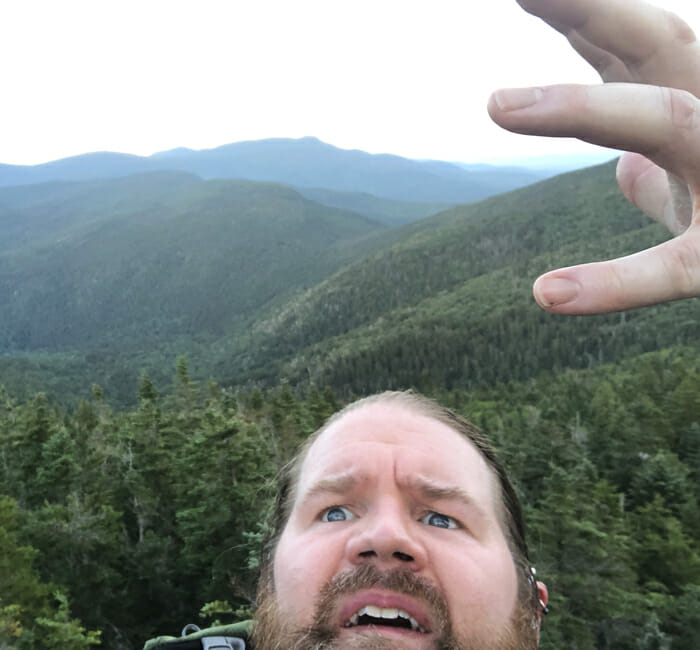
Mike Alexander works for Psychedelics Today. He writes the show notes for each podcast, handles most of the email, edits video and audio, helps with the blog, and annoys the rest of the team on Slack. He eats a lot of pizza, spends a lot of time in the woods, and spends most of his money on Phish tour.
